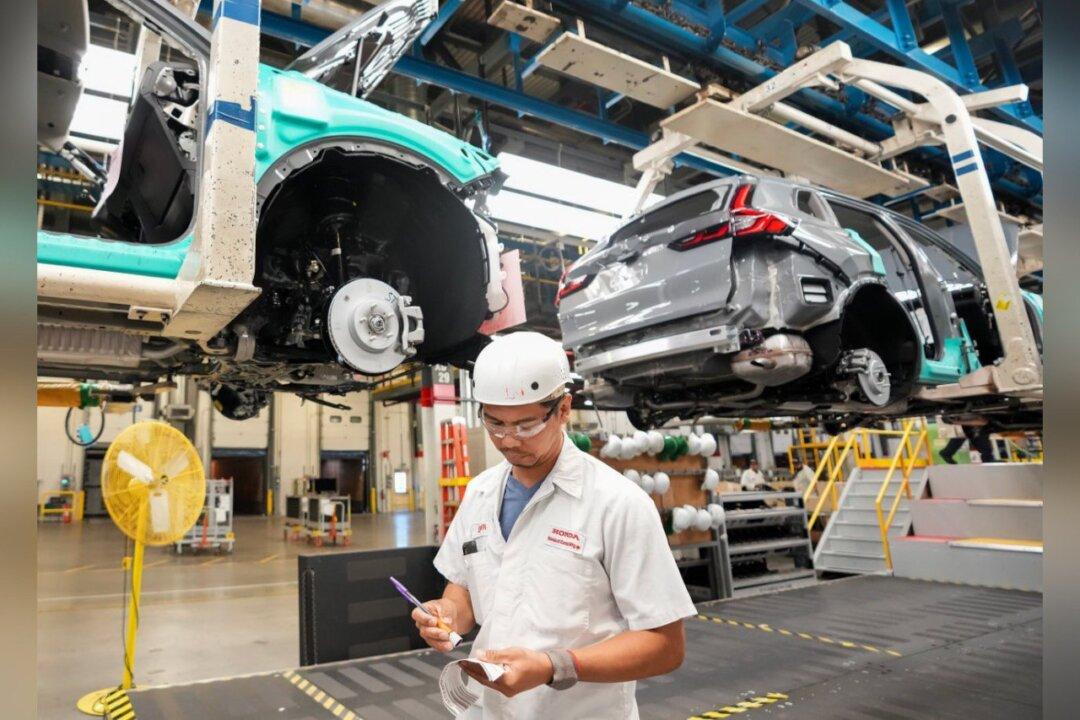Honda Canada is delaying a $15 billion investment project in electric vehicles in Ontario, including a planned EV battery manufacturing facility and an upgraded vehicle assembly plant.
The news was made public during a May 13 Honda Global press conference to announce the company’s financial results for its latest fiscal year, which ended on March 31.





